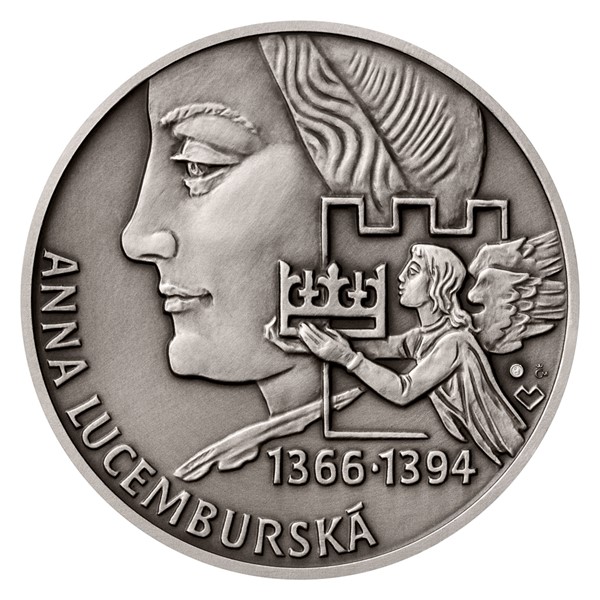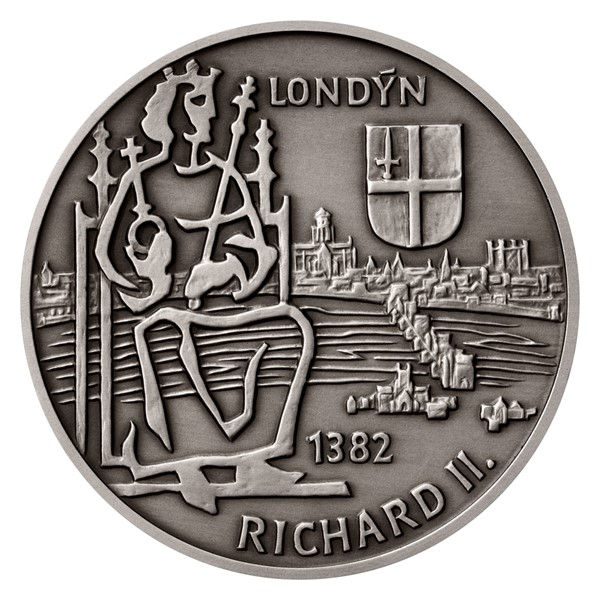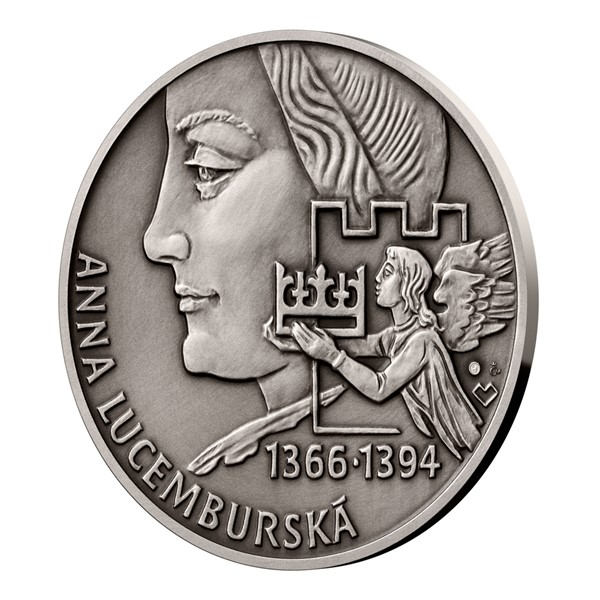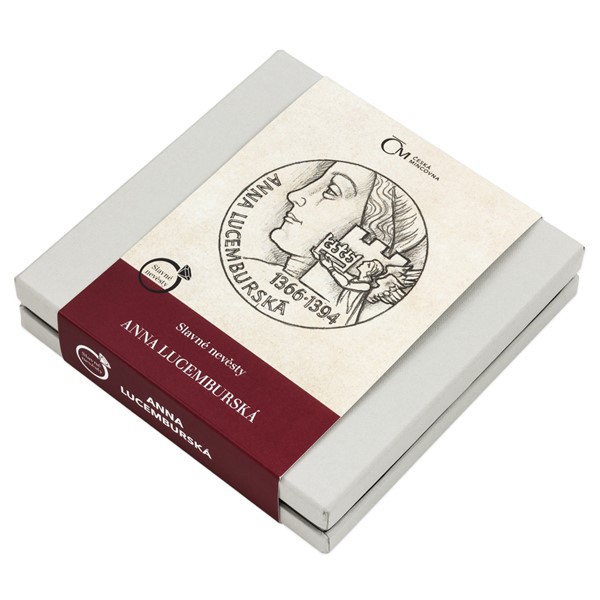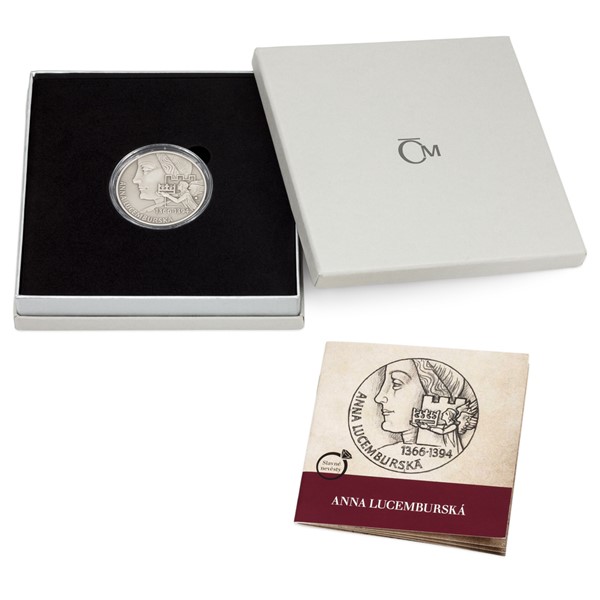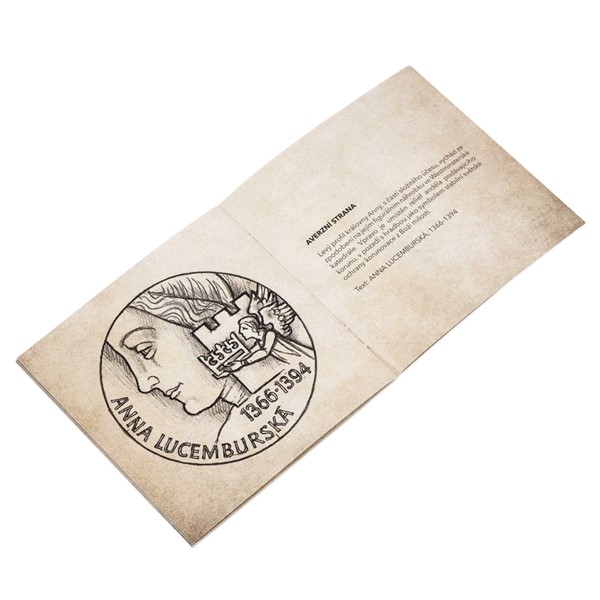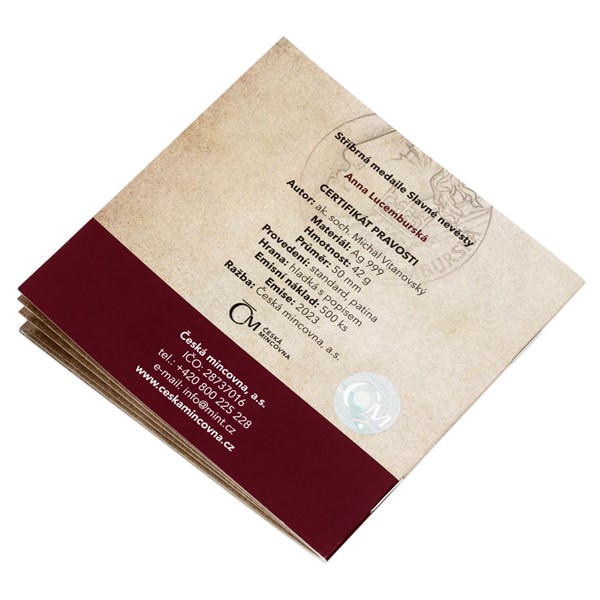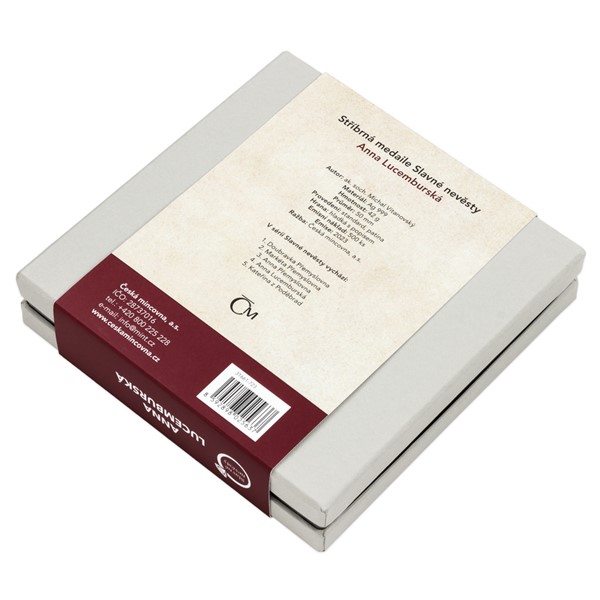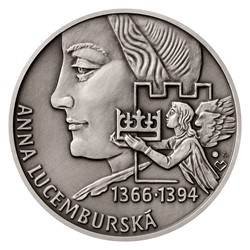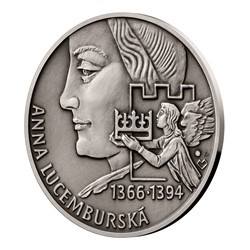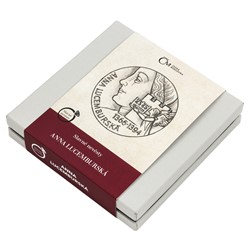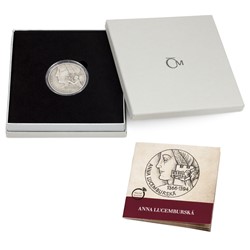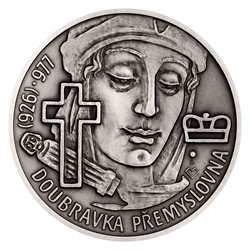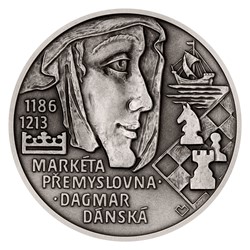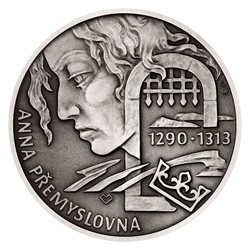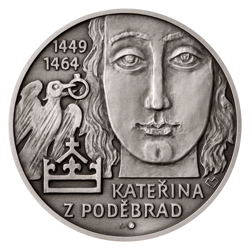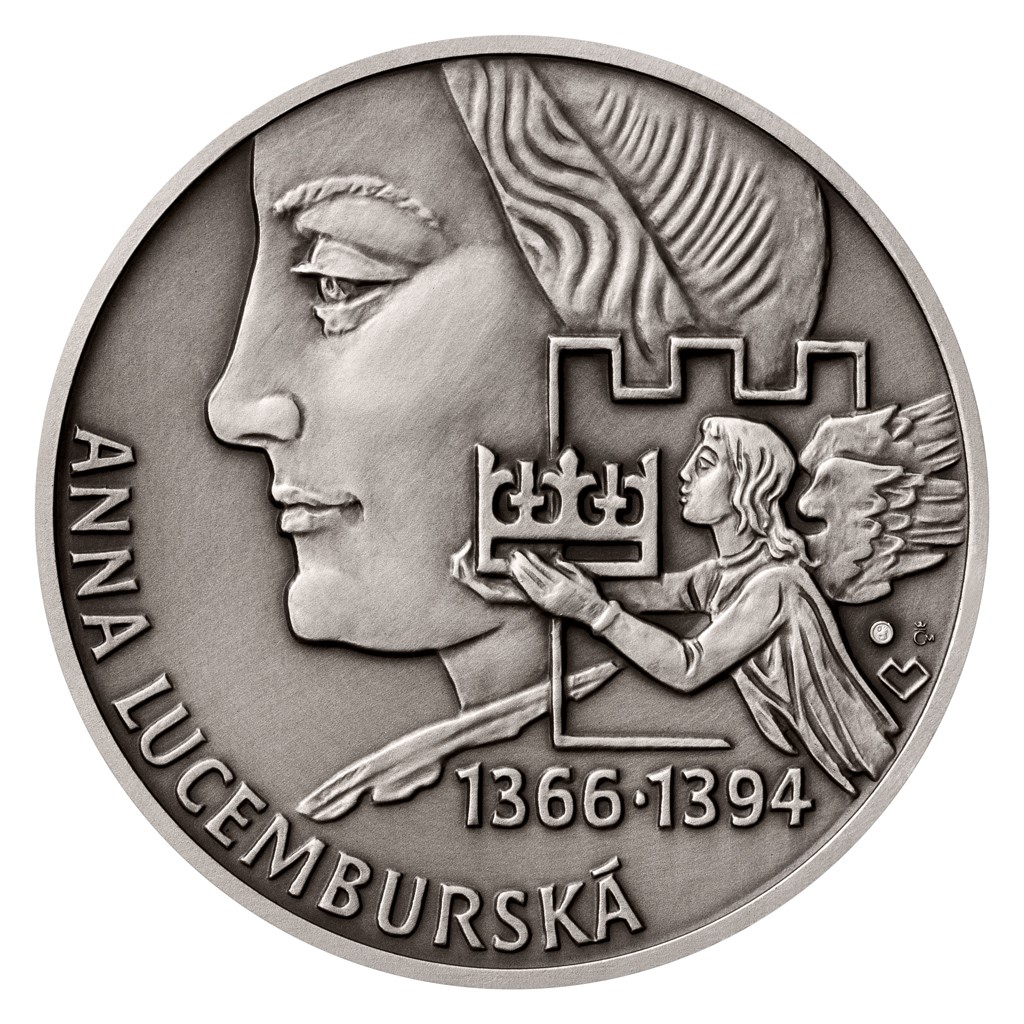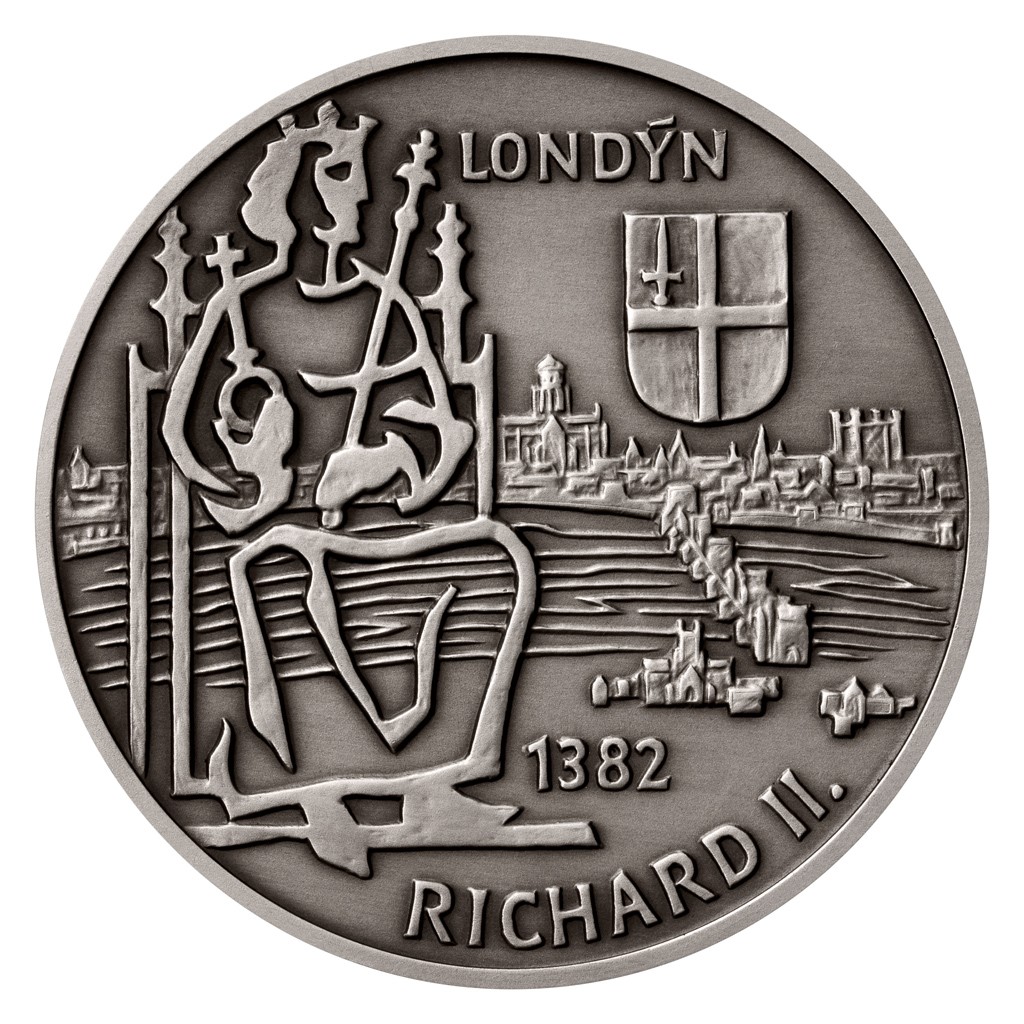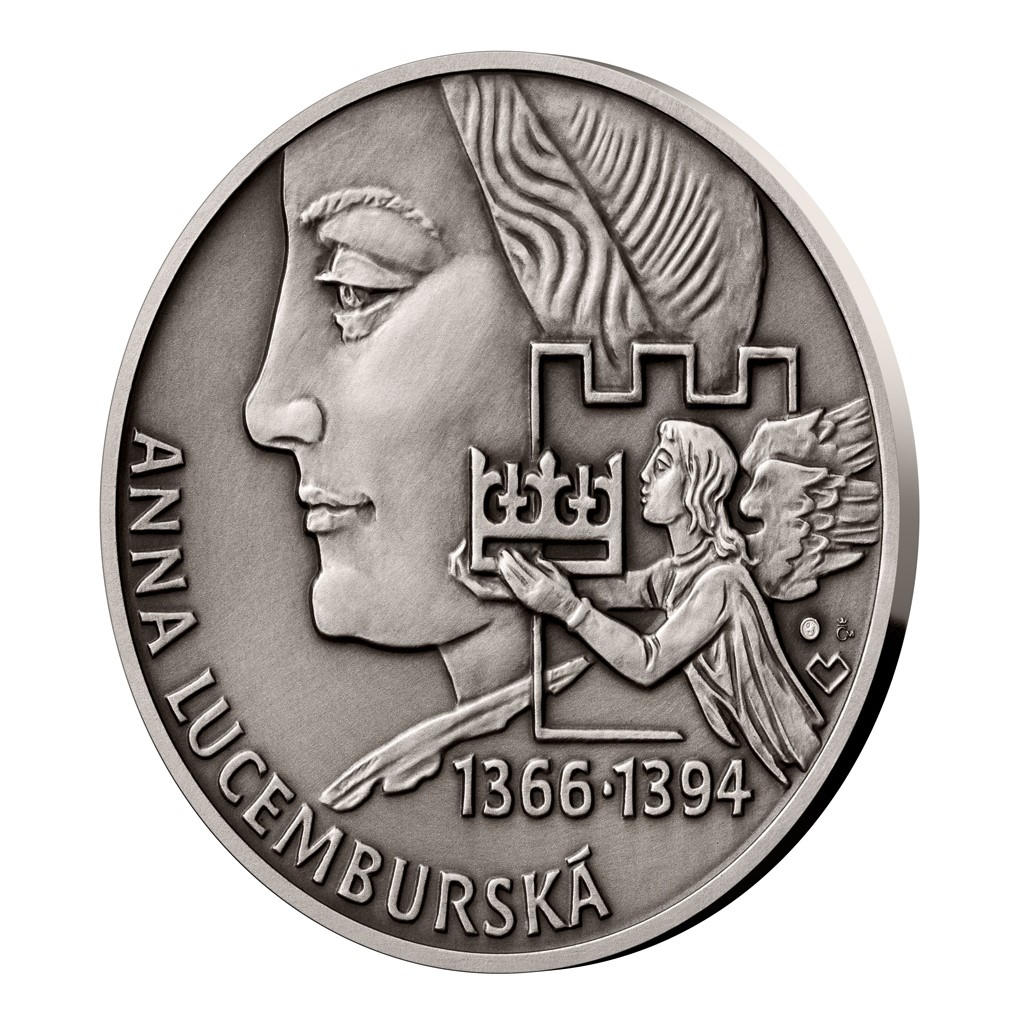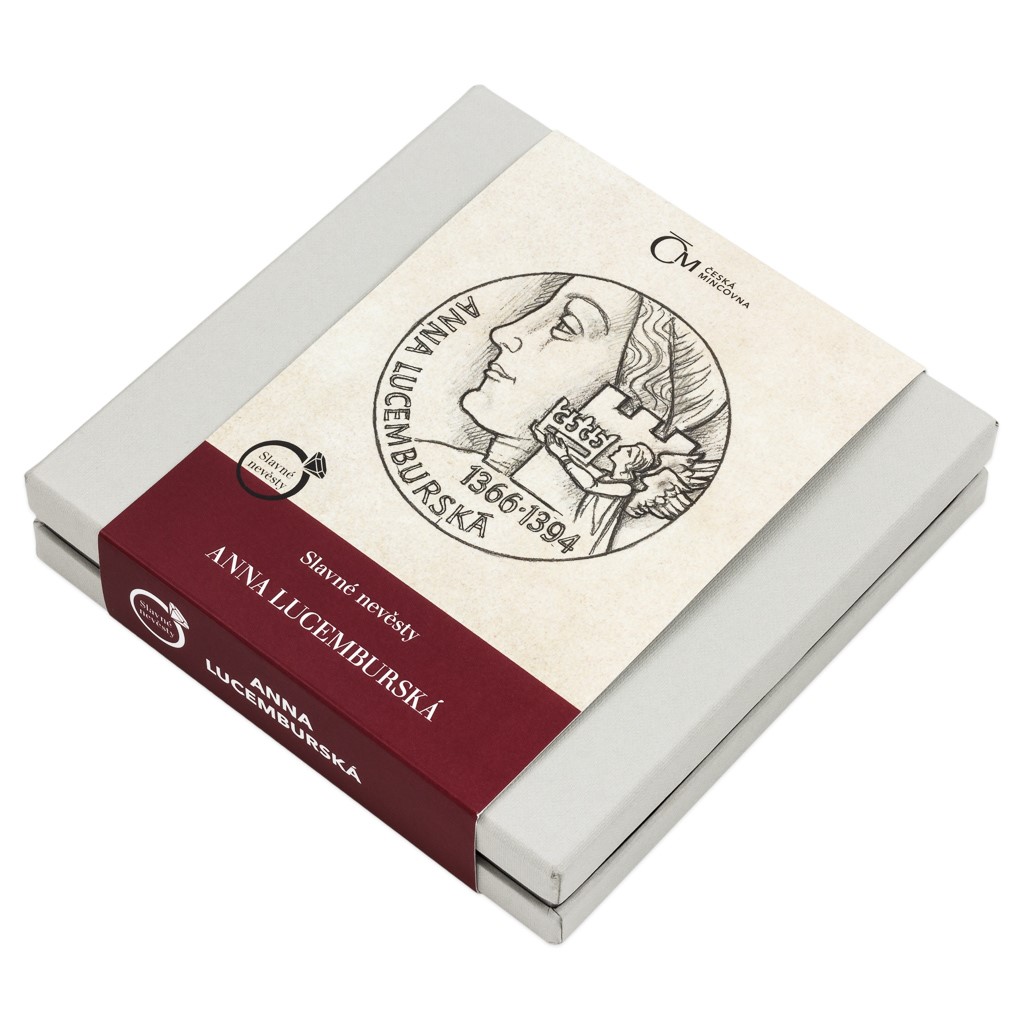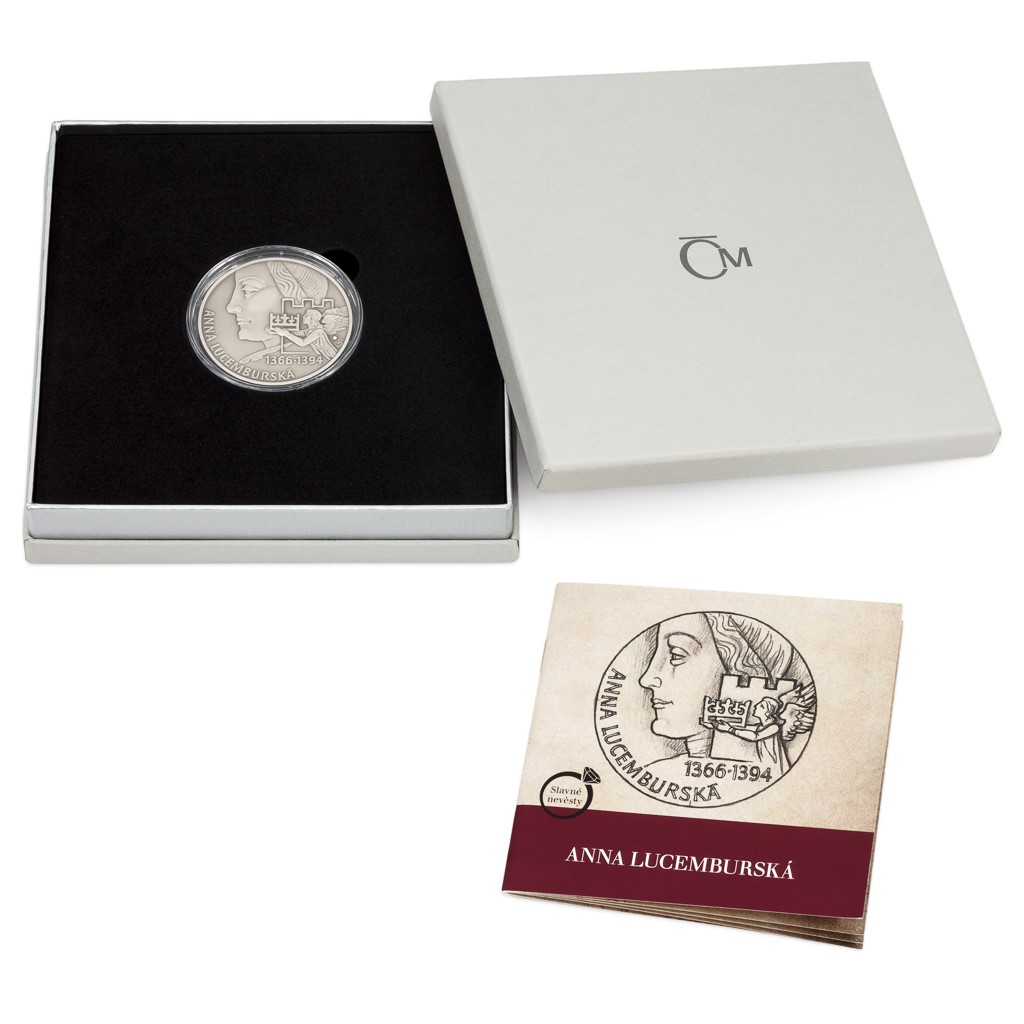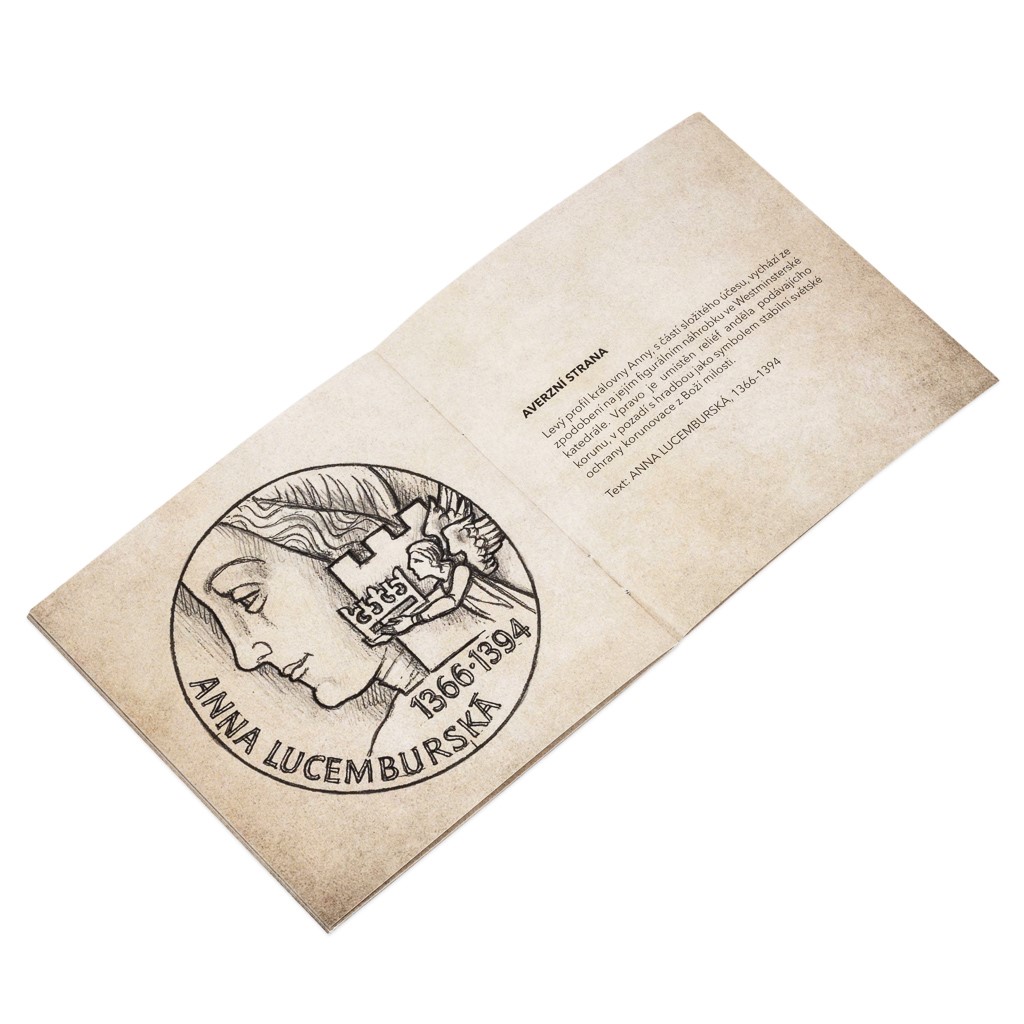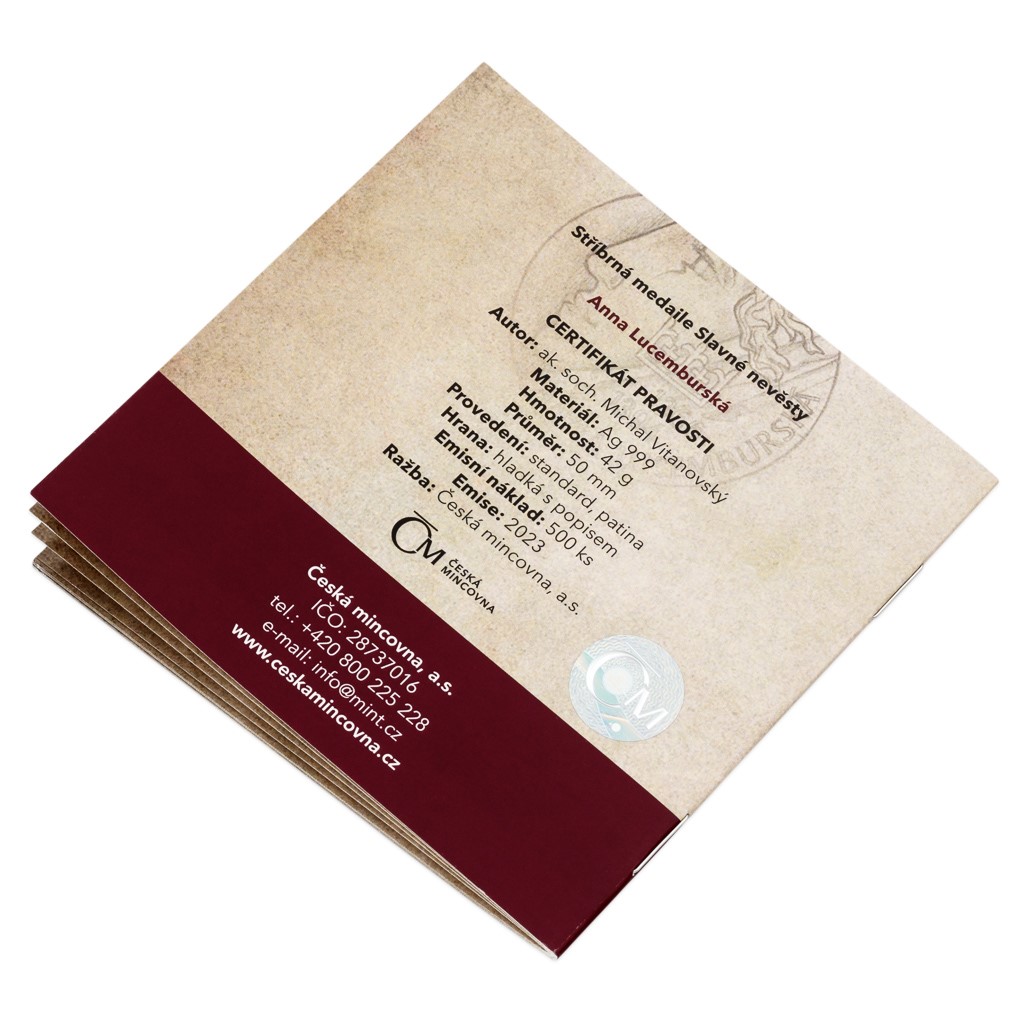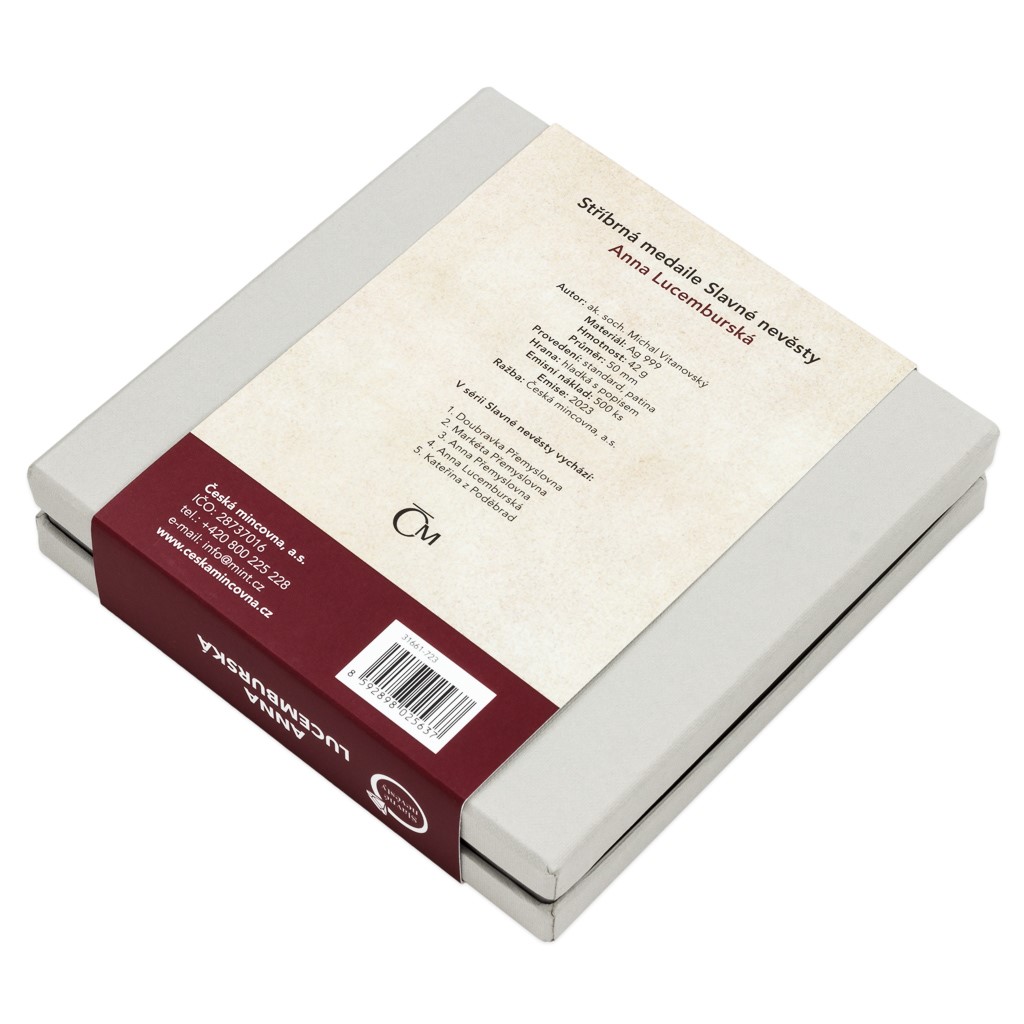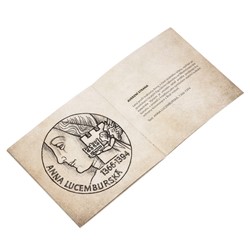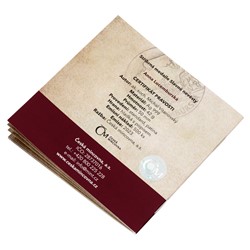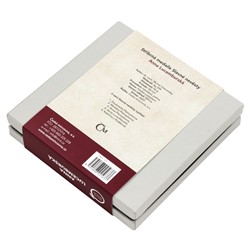Silver medal Famous brides - Anna Lucemburská stand
Silver medal Famous brides - Anna Lucemburská stand
The product can also be purchased directly in the stores of the Czech Mint
Famous brides
The five-part series of the Czech Mint entitled Famous brides tells the story of noble Czech women who were married off to foreign countries. Happiness awaited some, misery awaited others...Anne of Bohemia appears as the fourth on silver medals embellished with patina.
Charles IV's daughter Anne was born to his fourth wife, Elizabeth of Pomerania. Her father did not have time to place her on the imaginary chessboard of dynastic marriages, which he excelled in organizing. His successor, Anne's half-brother Wenceslaus IV of Bohemia, did it instead. The French king's advisors became interested in Anne of Bohemia as a possible royal bride. But their efforts clashed with similar ones coming from the enemy camp. This was the English court, with the youthful King Richard II. Plantagenet. In the diplomatic confrontation that followed, Wenceslaus IV eventually sided with England, and Anne married Richard in 1382. The bride, called Anne of Bohemia in England, brought a new fashion to her new home and repeatedly campaigned for the release of the king's prisoners. She probably encouraged John Wycliffe to translate the Bible into English and helped to publish his teachings in the Czech lands, where they inspired the master Jan Hus. Her kind deeds earned her the name "Good Queen Anne" among the people of England. The public voice thus counterbalanced the fact that she did not give the king and his country an heir to the throne...
"The left profile of Queen Anne, with part of her elaborate hairstyle, is based on the depiction on her effigy tombstone in Westminster Cathedral. On the right there is a relief of an angel holding out a crown, with a rampart in the background as a symbol of the stable secular protection of the coronation by the grace of God," says the medal's author and history buff, ac. sculp. Michal Vitanovský. The inscription on the obverse side gives the name and life years of the queen: ANNA LUCEMBURSKÁ, 1366–1394. The reverse side of the medal then presents a linear figure of King Richard II and a medieval veduta of London, above which is the city's coat of arms. In addition to the name of the city, the inscription on the reverse side also includes the name of the King and the year of his marriage: LONDÝN 1382, RICHARD II.
The medal includes a special appendix that introduces Anna's life and the details of the medal's relief through the words of Michal Vitanovský.
 čeština
čeština
 slovenčina
slovenčina
 english
english
